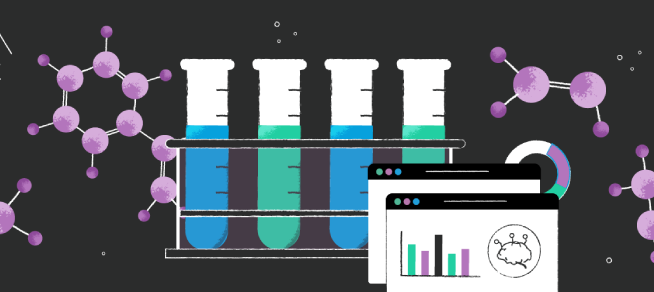slot gacor
slot gacor
slot gacor
slot gacor
slot gacor
agen bonus slot
slot gacor 2024
slot mudah maxwin
How Machine Learning is Improving Safety Protocols in Chemical Manufacturing
Chemical manufacturing is a complex and high-risk industry that requires stringent safety protocols to protect workers, the environment, and the public. Traditional safety measures, while effective, often rely on manual processes and historical data, which can be limited in scope and responsiveness. However, the integration of machine learning (ML) into safety protocols is transforming the industry by providing real-time insights, predictive analytics, and automation. This article explores how machine learning is enhancing safety protocols in chemical manufacturing, offering valuable insights into the latest advancements and their impact on the industry.
Introduction to Machine Learning in Chemical Manufacturing
Machine learning is a subset of artificial intelligence (AI) that involves training algorithms to recognize patterns and make decisions based on data. In chemical manufacturing, ML can analyze vast amounts of data from sensors, historical records, and real-time monitoring systems to identify potential hazards, optimize processes, and improve safety protocols.
Key Machine Learning Techniques Enhancing Safety in Chemical Manufacturing
Several machine learning techniques are proving invaluable in improving safety protocols in the chemical manufacturing industry. Here are some of the most impactful ones:
1. Predictive Maintenance
Predictive maintenance uses machine learning algorithms to predict when equipment is likely to fail, allowing for timely maintenance and reducing the risk of accidents.
Application: Equipment Health Monitoring
Machine learning models can analyze data from sensors installed on manufacturing equipment to monitor their health and performance. Techniques such as anomaly detection and time series analysis can identify patterns that indicate potential equipment failures. By predicting these failures before they occur, companies can perform maintenance proactively, reducing downtime and preventing accidents.
2. Process Optimization
Machine learning can optimize chemical manufacturing processes by analyzing data to identify inefficiencies and potential hazards.
Application: Reaction Monitoring
Chemical reactions must be carefully monitored to prevent dangerous conditions such as overheating or pressure buildup. Machine learning models can analyze data from reaction processes in real time, identifying deviations from normal conditions and predicting potential hazards. This allows operators to take corrective actions promptly, ensuring the safety and efficiency of the process.

3. Hazard Prediction
Machine learning can predict potential hazards by analyzing historical data and identifying patterns associated with past incidents.
Application: Spill and Leak Detection
ML models can be trained on historical data of spills and leaks to identify conditions that are likely to lead to such incidents. By monitoring current operations and comparing them with historical patterns, these models can provide early warnings of potential spills or leaks, allowing for timely intervention.
4. Safety Training and Compliance
Machine learning can enhance safety training programs by providing personalized learning experiences tailored to individual workers’ needs.
Application: Personalized Learning Programs
Machine learning algorithms can analyze the performance and learning styles of employees to create customized safety training programs. These programs can focus on areas where individual workers need improvement, ensuring that all employees are well-versed in safety protocols and best practices.
Integrating AI Chatbot Development Services in Safety Protocols
AI chatbot development services can significantly improve safety protocols by providing automated assistance and real-time information to workers and safety managers.
Application: Real-Time Safety Assistance
AI chatbots can be integrated into safety management systems to provide real-time assistance to workers. These chatbots can answer questions about safety procedures, provide step-by-step guidance for handling hazardous materials, and alert workers to potential safety issues. By offering instant access to critical information, AI chatbots can help prevent accidents and ensure compliance with safety protocols.
The Role of Generative AI in Healthcare for Chemical Manufacturing Safety
Generative AI, a subset of machine learning that involves creating new data samples, can also play a role in enhancing safety in chemical manufacturing by simulating various scenarios and their potential impacts.
Application: Safety Scenario Simulations
Generative AI can create realistic simulations of hazardous scenarios, such as chemical spills or equipment failures, based on historical data and current conditions. These simulations can help safety managers understand the potential impacts of various hazards and develop effective response strategies. By preparing for a wide range of scenarios, companies can improve their emergency response protocols and minimize risks.
Case Studies: Machine Learning in Action
Case Study 1: Predictive Maintenance in a Chemical Plant
A chemical manufacturing plant implemented a predictive maintenance system using machine learning to monitor its critical equipment. By analyzing data from sensors installed on pumps, valves, and reactors, the system was able to predict failures before they occurred. This proactive approach reduced unplanned downtime by 30% and significantly improved the safety and reliability of the plant’s operations.
Case Study 2: Process Optimization in Chemical Synthesis
A company specializing in chemical synthesis used machine learning models to optimize its reaction processes. By analyzing data from past reactions, the models identified optimal conditions for temperature, pressure, and reactant concentrations. This optimization not only improved yield and efficiency but also reduced the risk of hazardous conditions developing during reactions.
Case Study 3: Hazard Prediction in a Chemical Storage Facility
A chemical storage facility used machine learning to predict and prevent spills and leaks. The facility’s ML model analyzed historical incident data and real-time monitoring data to identify patterns that could lead to spills. By providing early warnings of potential hazards, the model helped the facility take preventive measures, reducing the incidence of spills by 25%.
Ethical Considerations and Challenges
While the integration of machine learning into safety protocols offers numerous benefits, it also presents several ethical considerations and challenges.
Data Privacy and Security
The use of machine learning in safety protocols often involves the collection and analysis of large amounts of data, including sensitive information about manufacturing processes and employees. Ensuring the privacy and security of this data is crucial to prevent unauthorized access and misuse.
Model Bias and Fairness
Machine learning models can sometimes exhibit bias, leading to unfair or inaccurate predictions. It is essential to ensure that these models are trained on diverse and representative datasets to minimize bias and ensure fairness in safety protocols.
Transparency and Accountability
The use of machine learning in safety-critical applications requires transparency and accountability. Stakeholders must understand how the models work and be able to trust their predictions. Clear documentation and explainable AI techniques can help achieve this.
Conclusion
Machine learning is revolutionizing safety protocols in the chemical manufacturing industry, making operations safer and more efficient. By leveraging techniques such as predictive maintenance, process optimization, hazard prediction, and personalized learning, machine learning models can provide real-time insights, predictive analytics, and automated assistance to enhance safety. The integration of AI chatbot development services and generative AI further extends the capabilities of these models, offering comprehensive solutions for safety management.
As the chemical manufacturing industry continues to adopt and integrate these advanced technologies, it is essential to address ethical considerations and challenges to ensure that the benefits of machine learning are realized responsibly and effectively. By staying informed about the latest advancements and best practices in machine learning, companies can continue to improve their safety protocols and protect their workers, the environment, and the public from potential hazards.
In this article, we have explored how machine learning is improving safety protocols in chemical manufacturing, highlighting the roles of AI chatbot development services, generative AI in healthcare, and personalized learning. By providing accurate and timely predictions, optimizing processes, and offering real-time assistance, machine learning is transforming safety management in the chemical manufacturing industry.
